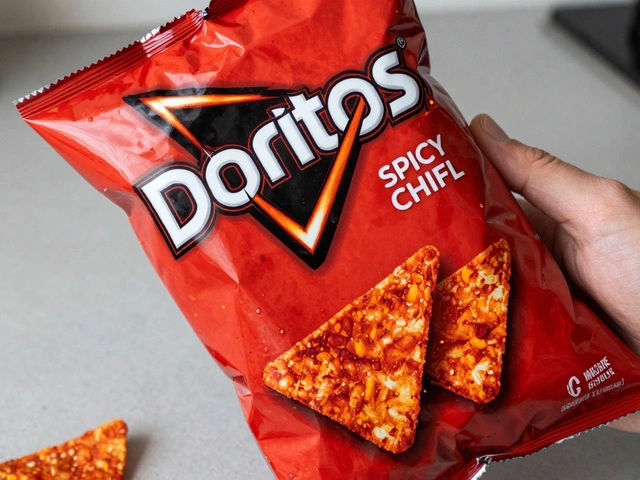
When embarking on a gluten-free journey, many focus on the dietary adjustments awaiting them — farewells to wheat-filled delights and welcomes to new culinary friends. Yet, one aspect that often sneaks up on people is the noticeable change in bowel movements. Yes, our poop is a great indicator of how our body reacts to what's on our plate, and gluten plays a significant role here.
Gluten sensitivity and its impact on digestion has long intrigued scientists and health enthusiasts alike. When your body decides gluten isn't its best friend, opting for gluten-free foods might just be the key to digestive harmony. As more people choose this path, they notice more than just a lighter step; the gut sings praises, and suddenly, bathroom visits become a renewed experience.
This article will walk you through the journey of how a gluten-free diet can influence your digestive health, highlighting those unexpected changes to your everyday routines. For anyone contemplating whether this lifestyle is for them, understanding these digestive nuances might be the piece that completes the puzzle.
- Understanding Gluten and Digestion
- Common Changes in Bowel Movements
- The Science Behind Gluten Sensitivity
- Adopting a Gluten-Free Lifestyle
- Relief for the Gluten-Sensitive
- Gluten-Free Cakes and Happy Taste Buds
Understanding Gluten and Digestion
Gluten, a composition of proteins found in wheat, barley, and rye, serves as a binding glue, giving elasticity and a chewy texture to many baked goods. For most, the glutenous pull of a warm, crusty bread is an essential delight. However, when it crosses paths with sensitive digestive systems, things can go awry. Understanding how gluten interacts with the digestive tract is key to appreciating why a gluten-free diet could be transformative for some.
The journey begins in the stomach, where gluten proteins first meet the acids of our digestive system. While most proteins are broken down into peptides and amino acids, gluten is resistant to complete digestion. As these partially digested proteins travel to the small intestine, they have the potential to trigger an immune response in susceptible individuals. This is the body’s way of battling what it perceives as a threat, though the real casualty here is the gut lining itself. In conditions such as celiac disease, this response damages the villi, tiny hair-like structures that line the intestines and are crucial for nutrient absorption. But even those without celiac disease might experience discomfort – often termed gluten sensitivity.
For those sensitive to gluten, symptoms can manifest in numerous ways. Beyond the intestines – where bloating, cramping, and drastic changes in stool consistency may occur – gluten can also affect other parts of the body. From headaches to skin rashes and even mood changes, gluten’s reach is vast. This wide array of symptoms makes it challenging to pinpoint gluten as the culprit unless digestive issues are prominent.
According to Dr. Alessio Fasano, a leading researcher in gastroenterology, "Gluten is one of the few proteins in our diet that is completely indigestible, which contributes to the adverse reactions some individuals show."
There’s an increasing recognition of non-celiac gluten sensitivity where individuals exhibit similar symptoms without the autoimmune damage seen in celiac patients. Scientists and healthcare providers are still unraveling the complexities of this condition, but they agree that eliminating gluten often offers significant relief. A practical approach to identifying gluten sensitivities involves an elimination diet, where gluten is removed under medical guidance, and the individual’s symptoms are carefully observed.
Choosing a gluten-free diet isn't just about forgoing traditional bread and pasta. Many processed foods contain hidden gluten, which can sneak into your body under the guise of stabilizers, preservatives, and flavorings. Learning to navigate the world of food labels becomes an essential skill to truly align with a gluten-free lifestyle. The market today is filled with substitutes that allow individuals to enjoy a wide array of foods, including delectable gluten-free cakes, letting one’s sweet tooth be sated without consequence.
Recent statistics reveal a growing number of individuals turning to this lifestyle choice. Within the United States alone, the gluten-free market is expected to reach approximately $24 billion by 2027, demonstrating the deepening awareness and need for gluten alternatives. As understanding continues to evolve, so does the ability for those affected to manage their symptoms with educated dietary decisions and improved options that cater to their needs.
Common Changes in Bowel Movements
Switching to a gluten-free diet can bring about noticeable changes to your digestive system, especially in terms of bowel movements. Many people report that their bathroom trips become more regular and comfortable. This shift often occurs because gluten can trigger an inflammatory response in the gut, which disrupts normal digestion and leads to symptoms like diarrhea, constipation, and bloating. By eliminating gluten, your body no longer has to contend with this irritant, allowing it to maintain a more balanced digestive rhythm.
It's intriguing to see how people react differently based on their level of gluten sensitivity. For some, cutting out gluten results in firmer and more formed stools within weeks. Others might notice a reduction in the frequency of loose stools and a lesser need for emergency bathroom trips. This improvement in stool consistency can be linked back to the body's reduced inflammation levels, allowing the intestinal lining to heal and absorb nutrients more efficiently.
For those who aren't clinically diagnosed with celiac disease but still experience discomfort from gluten, the gluten-free lifestyle can still lead to more harmonized bowel movements. People often report feeling less bloated and gassy, a change attributed to the elimination of gluten-induced fermentation in the gut. It's an enlightening experience for those grappling with unpredictable bathroom schedules. "I've noticed fewer bouts of bloating and my mornings are much more predictable," said Melissa Hartwig, co-creator of the Whole30 program, sharing her experience with ditching gluten.
However, not everyone experiences these changes immediately. It can take time for the body to adjust, especially if it has been exposed to gluten for years. During this adjustment period, it's essential to drink plenty of water and maintain a balanced diet rich in fiber, coming from natural sources like fruits and vegetables. This approach ensures smoother transitions and helps the digestive system find its new normal. It’s important, though, to understand that other factors like stress and healthy eating patterns play roles too, so keep a holistic perspective on your health journey.
Interestingly, a gluten-free diet doesn't just stop at improving your bathroom experience. As the body settles into its new routine, you may notice increased energy levels and clearer mental focus—yes, food's extraordinary effect reaches far beyond the digestive tract. The changes in bowel movements are just one of many indicators that your body might be thanking you for passing on gluten.

The Science Behind Gluten Sensitivity
To grasp why some individuals experience remarkable digestive changes when switching to a gluten-free diet, it's crucial to delve into the nitty-gritty of gluten sensitivity. Gluten is a protein composite found in grains like wheat, barley, and rye. For most people, gluten is harmless. However, for those with gluten sensitivity or the more severe celiac disease, this protein can provoke a spectrum of unpleasant symptoms that ripple through their digestive systems. The body's reaction to gluten in sensitive people can cause inflammation, leading to symptoms such as bloating, diarrhea, and abdominal pain. It's a countermeasure gone awry — the immune system perceives gluten as a threat and wages war in parts of the body where it should not.
"For those with gluten sensitivity, the immune response can resemble a shaky alliance gone wrong, where the body mistakes gluten for an invader," says Dr. Alessio Fasano, a leading researcher in gluten-related disorders. "Understanding this is pivotal."
The distinction between celiac disease and non-celiac gluten sensitivity primarily lies in the testing and damage involved. Celiac disease is an autoimmune condition confirmed through specific blood tests and intestinal biopsies showing damage to the small intestine's villi. On the other hand, gluten sensitivity doesn't show such intestinal damage but shares symptoms, thus complicating the diagnostic process. The body's response can vary wildly among those affected. As research advances, scientists are uncovering more about how gluten protein triggers these distinct immune responses. Interestingly, the number of people experiencing non-celiac gluten sensitivity seems to be rising, providing fertile ground for ongoing scientific inquiry.
Emerging studies suggest that factors like changes in digestive health, gut microbiota composition, and even genetic predispositions could play roles. Scientists are increasingly interested in the gut-brain axis and how this intricate communication line influences our digestive responses and vice versa. As the threads of dietary preferences and physiological responses weave through this complex biological tapestry, we start to appreciate the uniqueness of our individual thresholds for gluten. Studies show that adopting a gluten-free lifestyle often leads to drastic improvements in digestive health within weeks. This compelling evidence contributes to the ever-evolving understanding of gluten sensitivity, and it empowers individuals to make informed dietary decisions.
Adopting a Gluten-Free Lifestyle
Transitioning to a gluten-free diet is more than a dietary shift; it's an adventure that involves thoughtful planning, learning new recipes, and perhaps, revamping your pantry. For many, it begins with understanding what gluten is and why avoiding it can be crucial. A protein found in wheat, barley, and rye, gluten can wreak havoc on the digestive systems of some individuals. For those with celiac disease or gluten sensitivity, it can lead to symptoms ranging from bloating and discomfort to more severe issues like nutrient deficiencies.
The first step in adopting this lifestyle involves identifying which foods to eliminate. It’s eye-opening to realize how pervasive gluten is in everyday items, from breads and pastas to the sauces and even medications. However, with the growing demand for gluten-free options, the market is brimming with delightful alternatives. Think quinoa, rice, and the versatile corn, which open up a world of culinary possibilities. One might even discover that many of these alternative grains bring about unique textures and flavors, enriching meals in surprising ways.
It’s also worth tapping into the abundant resources available. Cookbooks, blogs, and online communities offer guidance, recipes, and support for those just starting. Joining gluten-free groups can be a source of encouragement, too, where sharing triumphs and challenges makes the journey less daunting and more communal. Moreover, food brands have responded to the gluten-free movement with gusto, leading to an increase in delicious, ready-to-eat options like gluten-free cakes, cookies, and doughnuts lining grocery aisles.
Navigating social situations might seem intimidating initially, but it’s all about preparation and communication. Explaining dietary needs to friends or choosing restaurants with gluten-free menus can ease dining anxieties. For inspiration, the words of prominent nutritionist Dr. Alessio Fasano resonate: "For those who are sensitive, eliminating gluten is not just a diet; it's medicine."
For meticulous label readers, finding hidden sources of gluten becomes second nature. Whether it’s a sudden craving for a quick snack or the need to whip up a full dinner, knowing typical gluten-laden culprits like soy sauce or certain salad dressings helps in making swift decisions. Another logical step is stocking up on trusted gluten-free products and always having them on hand. This not only ensures variety but also keeps meal planning stress-free.
This transformation extends beyond health benefits; it brings about awareness and often a deeper connection with the foods we consume, their origins, and preparations. As the journey unfolds, many realize that life gluten-free does not mean missing out, but embracing a new way of eating that is flavorful, satisfying, and above all, health-enhancing.

Relief for the Gluten-Sensitive
Embarking on a journey to understand how gluten impacts your digestive system can be both enlightening and transformative. For those who experience gluten sensitivity, going gluten-free is often synonymous with gaining relief from a myriad network of discomforting symptoms. Many individuals report improved digestion as one of the most significant changes after removing gluten from their diet. What's happening? Gluten, a protein found in wheat, barley, and rye, can be difficult for some to digest. The presence of gluten in the digestive tract may cause inflammation and damage to the small intestine's lining, leading to symptoms like bloating, diarrhea, and abdominal pain. For someone sensitive to gluten, eliminating it often results in a calm digestive system and improved overall well-being.
There is scientific backing to the relief that many experience when going gluten-free. Research shows that individuals with non-celiac gluten sensitivity often experience a decrease in gastrointestinal symptoms along with improvements in energy and mood after removing gluten from their diet. Digestive health seems to flourish in the absence of gluten, allowing the intestines to heal and nutrient absorption to be restored. This relief can manifest not only in decreased bathroom trips but also in increased energy levels and a sense of clarity that is hard to ignore. Such changes translate into more comfortable daily living and a better quality of life.
While each person's experience on a gluten-free diet may vary, the positive feedback loop of feeling better encourages continued commitment to this lifestyle change. Many discover the joys of experimenting with gluten-free cakes and other alternative flour options, adding variety and joy back into their diet without the unpleasant side effects. For those experiencing the relief firsthand, it's not simply about eliminating something from their nutritional repertoire; it's about embracing newfound health and a sense of relief they once thought elusive. This transition can feel like peeling away the fog that once obscured vibrant health and boundless energy.
Not everyone will feel instant relief when removing gluten; it can take days, weeks, or even months for the body to fully adjust. Nevertheless, for many, the patience and effort are worthwhile. It's the small victories, like sleep without disruption or a disruption-free commute, that make this endeavor rewarding. The digestive health perks become personal triumphs, validating their choice and reinforcing the importance of listening to one's body. The elimination of gluten becomes a ticket to freedom—a break from the cycle of symptoms that once ruled their days.
Anecdotal evidence suggests that enchanting transformations aren’t unique to individuals but extend to families and communities. The collective knowledge shared in support groups and online communities fosters an environment where one can learn and grow. The strength found in shared experiences solidifies this lifestyle choice as more than a dietary measure, but as a movement fueled by desire for better health.
A recent survey in a medical journal illustrated how 70% of respondents reported significant gastrointestinal symptom relief after adopting a gluten-free diet.
The road to relief begins with understanding one's body and its unique needs. For those embarking on a gluten-free journey, the promise of relief and improved health provides a sustaining light, guiding them toward a future where delicious meals don't compromise digestive health. It's a reminder that even the smallest dietary changes can spearhead some of the most profound personal transformations. Whether you're savoring a piece of gluten-free cake or enjoying a lightened step in your day, relief for the gluten-sensitive is not just a possibility—it's a reality achievable through informed choices and positive habits.
Gluten-Free Cakes and Happy Taste Buds
For those embracing a gluten-free lifestyle, desserts might seem like forbidden territory at first glance, especially cakes which are traditionally wheat-laden. However, the world of gluten-free cakes is surprisingly delightful and innovative. These treats are crafted using a variety of exciting ingredients that not only substitute for gluten but also introduce unique flavors and textures that many have grown to love.
One fascinating transformation when creating gluten-free cakes is the use of flours made from rice, almonds, and even chickpeas. These alternatives offer a naturally rich taste and are complemented by their ability to achieve textures that rival traditional wheat-based cakes. Almond flour, for instance, imparts a nutty flavor that goes wonderfully with chocolate or citrus-based cakes, making every bite a new adventure for your palate.
The New York Times highlighted the rise of gluten-free baking by quoting, "Gluten-free baking isn't about what you're missing—it's about discovering new possibilities."
Beyond flavor, the nutritional profile of gluten-free cakes is often more enticing. Ingredients such as almond flour are high in protein and low in carbohydrates, offering a more balanced treat compared to conventional sweets. This means you can indulge in a slice of cake without the usual guilt, especially when topped with fresh fruits or nuts which add not just flavor but a nutritional boost too.
When baking gluten-free cakes, it's essential to consider the modification in recipes and techniques. Gluten is, after all, the key protein that binds dough and gives it elasticity; so its absence requires clever replacements. Xanthan gum and guar gum often come into play, acting as binding agents that ensure the cake holds together beautifully without crumbling away too soon. These are the unsung heroes of many successful gluten-free recipes, helping achieve the desired structure and chewiness.
The journey to perfecting a gluten-free cake doesn't end at mixing ingredients. The baking process itself can sometimes require adjustments to achieve optimal results. For instance, gluten-free batters might benefit from a short rest before baking to allow liquid ingredients to hydrate alternative flours fully. This can vastly improve the cake's moisture content once it emerges golden from the oven.
Exploring gluten-free cakes can be an enriching experience not just for those with gluten sensitivities, but for anyone looking to expand their culinary repertoire. From moist, buttery cakes to those with a hint of exotic coconut or banana, the variety is endless. So whether you're serving them at a family gathering or simply enjoying a quiet moment with a cup of tea, these cakes promise a sweet and satisfying escape from the ordinary.





